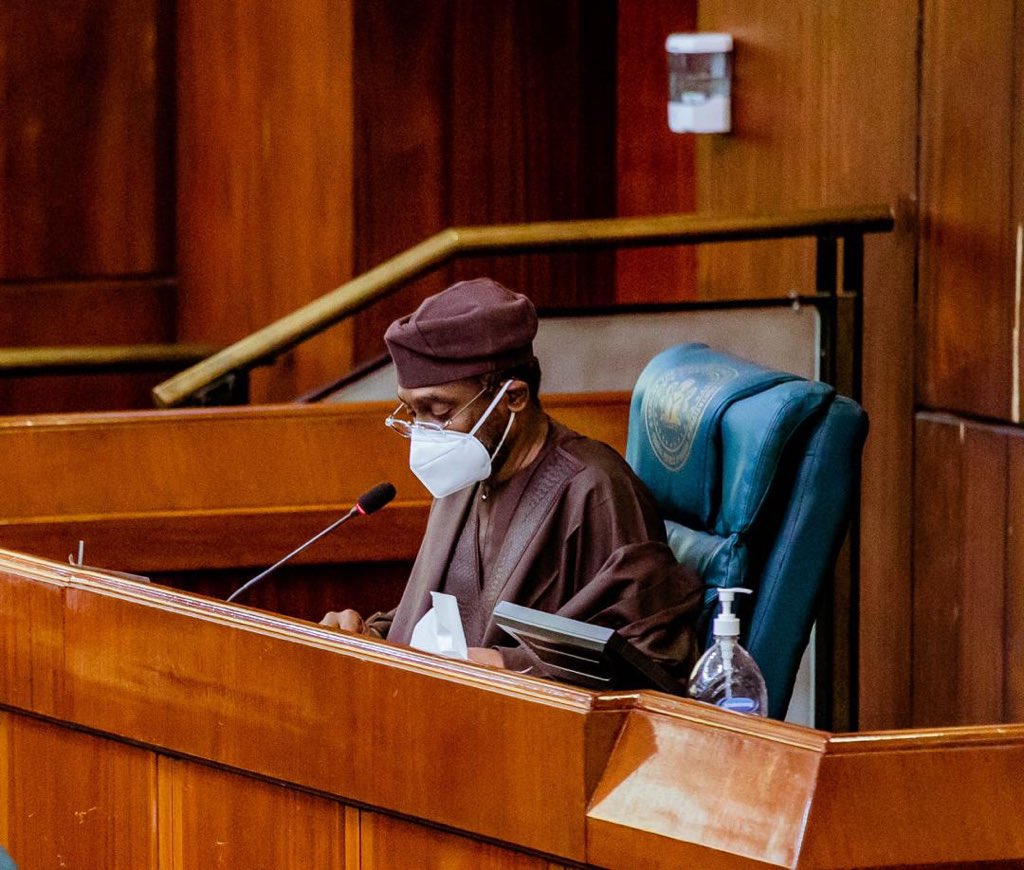Legislature
Debt servicing is a threat to Africa’s stability and development – Gbajabiamila

Speaker of the Nigerian House of Representatives Mr. Femi Gbajabiamila has convened a meeting of some African Speakers of Parliaments where the Lawmakers agreed on an urgent need to push for debt cancellation for the continent from their multilateral and bilateral partners.
Mr. Gbajabiamila also initiated a move to establish the Conference of African Speakers and Heads of Parliament (CoSAP), a body that will facilitate increased collaboration between Speakers, Heads of Parliament and National Assemblies across Africa.
The Conference of African Speakers will also seek to advance the African development agenda within and outside the continent in conjunction with both the executive arms of government as well as African regional institutions.
These emerged following a virtual meeting conveyed by Mr. Gbajabiamila on Monday with Mr. Tagesse Chafo, Speaker, House of Peoples Representatives, Ethiopia; Prof. Aaron Mike Oquaye, Speaker of Parliament, Ghana; Mr. Justin Bedan Muturi, Speaker, National Assembly, Republic of Kenya; Mrs. Donatille Mukabalisa, Speaker, Chamber of Deputies, Rwanda; and President Moustapha Niasse, President, National Assembly, Senegal.
In his opening remarks, Speaker Gbajabiamila stressed the urgent need to join local and global efforts to push for the cancellation of the external debt owed by various countries on the continent.
He said development across the continent has become stunted due to the heavy burden of the debts, noting that the outbreak of the coronavirus (COVID-19) has compounded the issue for the continent, considering the socio-political and economic consequences of the disease.
“We all agree that Africa’s debt burden has become an existential threat to our societies, our economies and the future; we leave to posterity, and we need to do something about this and treat it as a continent-wide priority.
It is safe to say that the burden of debt servicing, vis-à-vis spending on education and health care for example, is a threat to our continent’s stability and development, especially in the era of Covid-19.
When we find ourselves having to make policy choices between paying debts or saving lives, we know something is not morally right. And as democratically elected representatives of our people, we cannot be silent. We must speak up and we must act. And the time to act is now.
“Furthermore, there is the need for us to reflect on, the processes that led to Africa’s heavy indebtedness in the first place, the role parliamentarians can play to address this going forward and what assurances we as parliamentarians can give our borrowers that if our debt is cancelled, the freed-up resources will be invested in social and economic development of our citizens.
If we want debt cancellation, we must be able to build the confidence of the borrowers that the cancellation will indeed save lives and livelihoods across the continent, and we, as Speakers and Heads of our parliaments, will ensure that is indeed the case”. Speaker Gbajabiamila added.
On the need for the establishment of the Pan-African Speaker’s Conference, Gbajabiamila noted that collective efforts at tackling challenges facing the continent have become expedient.
He said: “The motive behind this initiative is that each year we identify a theme, issue, or challenge that is pan-African in scope and we meet to deliberate on how we can work together across parliaments in Africa to tackle these continental issues and challenges.
“As heads of our respective parliamentary entities, it will also be a good platform to share experiences and expertise in different aspects of our legislative duties pertinent to the growth, development and sustenance of our economies and our societies; and on ways to enhance the capacity and impact of our parliaments on our democracies and the lives of the peoples we all represent.
“We have spent decades learning from the rest of the world, now we must begin to learn from one another




